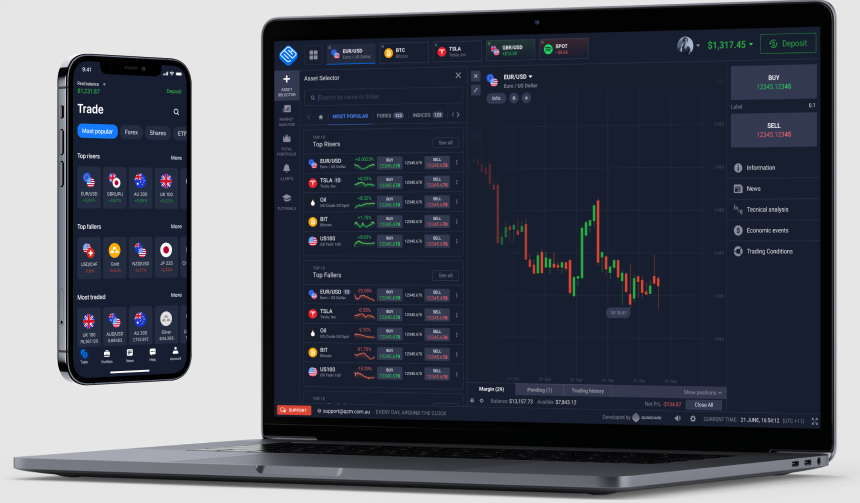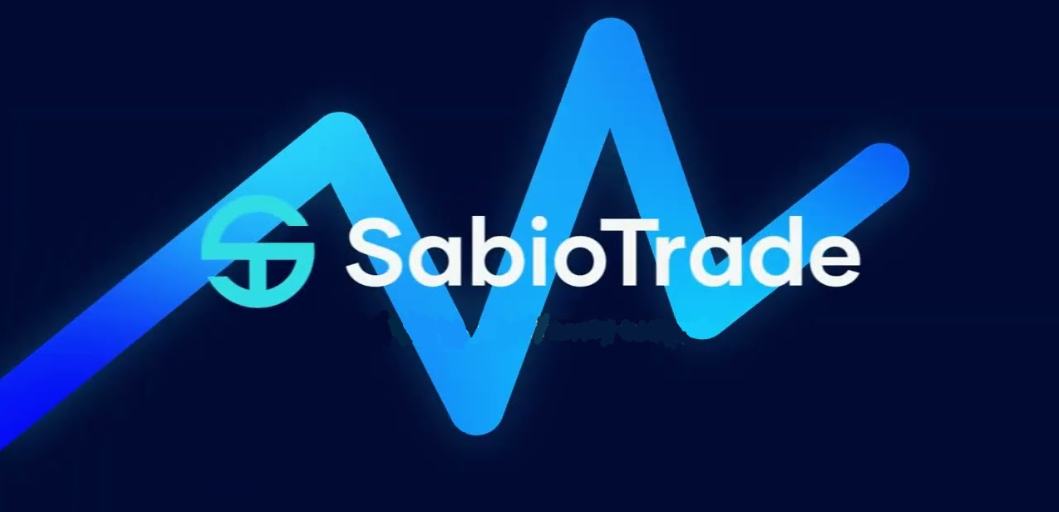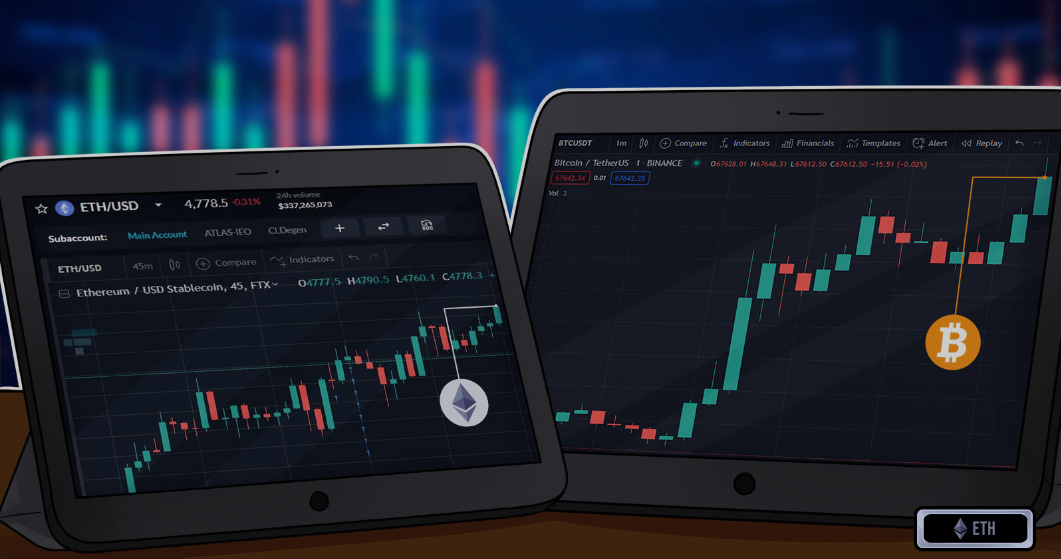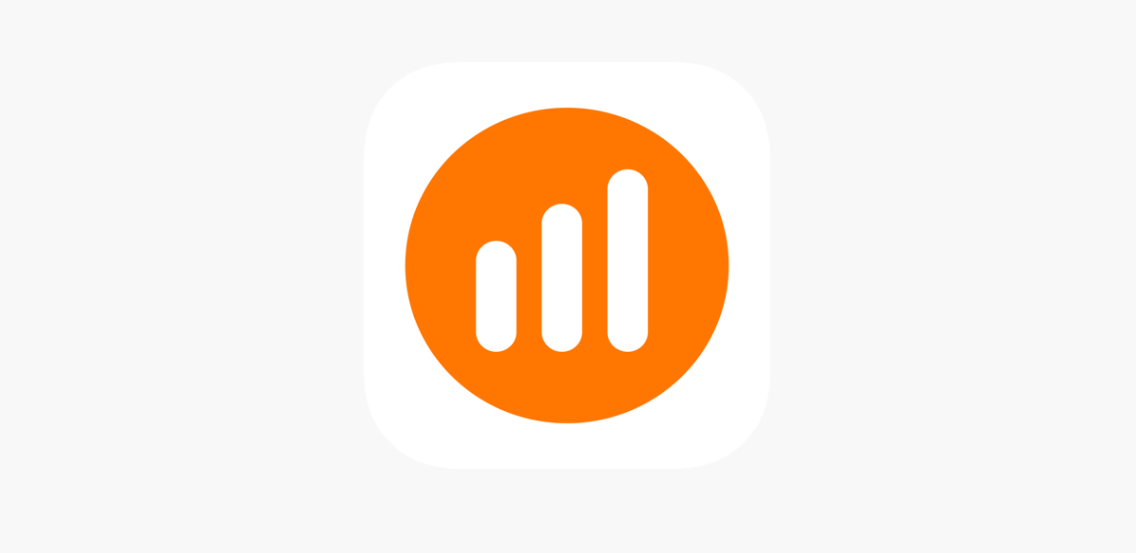Education is the key to successful day trading, and there are a wealth of online education options. Whether you want specific forex, futures or crypto training for advanced traders, or a free ebook for beginners, we explain how to find the best educational course for you and your needs. Day trading is a very broad topic that can seem overwhelming to potential traders. The truth is that trading is complicated; There are no shortcuts or get-rich-quick schemes and don’t believe anyone who says otherwise.
Commercial experience
However, that doesn’t mean you can’t make money from day trading. It simply means that you also need to take advantage of the experience and knowledge of others to profit from the trade. Investing in the best business day can equip you with essential knowledge, a valuable support network, and lead you to business success. Here we are going to offer some tips to help you choose the right daily business training for you. None of the available services can replace you learning “on the job” – trading and building experience yourself – but they can work with their own company to inspire and improve their skills.
Specific courses
If you are new to trading and looking for the best day trading training, it is a good idea to think about what kind of trading you want to do. Interested in options or futures? Do you want simple stocks or complicated indices? There are many options available:
Trading of stocks / shares
The most famous form of negotiation. It involves buying and selling shares of different companies through an exchange. Our stocks page can help explain which stocks are best suited for day trading; ultimately its volume and volatility. Most stock trading educational material will deal with ‘buy and hold’, a long-term strategy based on the core values and fundamentals of the business. Daily trading stocks are more based on price action. Therefore, learning technical analysis is more important than analyzing companies.
Forex Trading
Forex is a very popular form of trading, and billions are traded daily. Short for “currencies”, currency trading speculates on whether one currency will be more or less valuable than another. We have a separate article on forex education training here.
Trade Company
Commodity trading deals in things like precious metals or raw materials that produce other goods. Products are divided into two groups: Hard products are things that are mined (gold, oil, etc.) Soft products are usually agricultural products or products that are grown (wheat, sugar, etc.).
Cryptocurrency
Cryptocurrency requires a higher level of education than most today, simply because the product is so immature. You may have heard of Bitcoin, which is the most famous example of a cryptocurrency. Bitcoin and others such as Litecoin and Ripple are digital currencies that operate independently of banks. Cryptocurrency trading involves the use of digital wallets, blockchains and complex coding methods. However, it is possible to speculate on the price movement of cryptocurrencies without owning them. This simplifies the process and makes it much more accessible.
Futures trading
Futures involve predicting whether the price of a commodity or a share will rise or fall within a specified period of time.
Options trading
Options are one of the most complicated forms of day trading and will definitely require some form of trading training: they basically involve buying an ‘option’ to buy or sell shares during or after a period depending on whether you think that the price of the action is falling or rising.
Binary Options Trading
Binary options are a simplified form of options trading where the price of a stock or commodity is predicted to rise or fall over a specified period of time. The investment “bet” is fixed, so the potential loss is limited. Since the payment is also known in advance, it often refers to fixed risk operations. A trader will know exactly how much he will gain or lose, regardless of the size of the price movement in the underlying asset. Binaries are high risk trades and training options are limited. They are now banned in Europe due to the proliferation of fraudulent operators. Paying for education is just as great, and free websites or forums are an excellent option, along with demo accounts.
Index traded
Index trading involves trading in a group of stocks related to a specific area. For example, the FTSE 100 is a collection of the top 100 companies listed on the London Stock Exchange. The S&P 500 and Nasdaq are similar groups of stocks traded in the United States. It is possible to trade these index prices, and learning how to trade them is about price action and economic analysis for the broader market.
Social / Copywriting
Social or copy trading involves creating a pocket account and linking it to that of another, more experienced trader. Regardless of the trades you make, your account also means that your profits and losses are “copied” in proportion to the amount of money you have invested.
Swing Trading
Swing is not a form of day trading, but you will see many day trading education sites that offer courses. Swing trading is a form of stock trading in which you hold your shares for two days to 2 weeks to take advantage of any ‘swing’ in their price.
Free education versus paid education
Cost Comparison
If you are into business education, this is the most important thing you will consider. The first thing to note is that there is no free lunch; Almost all platforms or courses that promise free trading advice or training want to pay for more detailed services at some point. The aim is to find a reliable, high-quality course that offers good value for money. What constitutes good value for money depends on your own ambitions and circumstances. Here are some things to consider:
- Know what you want: there are many opportunities for business education. Before you fill in your card details on the first website that helps you find financial freedom, make sure you know what you’re looking for. Do you want to trade futures or currencies? Do you want to invest a little, or can you pay more? Do you learn better by reading or watching? Do you want someone to walk you through the basics, or are you happy to invest in some indicators and get cracking? Knowing these things will save you a lot of wasted expenses that could be better invested in a successful trade.
- Do your homework: some sites are honest about how much they charge for an educational course or package, others require more research. If a course offers ‘free’ education, you will probably have to start paying after so many lessons. These costs are not always announced or made clear, so you should read the fine print or ask ahead of time what costs, if any, may be claimed later.
- Budget: Course prices and pointers can vary enormously from $20 to $9000. There are also subscriptions that range from $10 per month to almost $200. Spending a lot of money is a big commitment, so if you think that a premium course is for you, make sure you can afford it and that you will get your money’s worth.
Find your level
Online trading courses often have different levels, usually beginner, intermediate, professional or similar. As expected, prices are on a sliding scale, and beginner courses are cheaper and more advanced. When looking for the best business training, determine what level of business is realistic. If you don’t know your FTSE from the back of your elbow, then you can’t be a premium trader straight away when you sign up to a premium gold member room. On the other hand, if you have invested a little in stocks and want to take your trading to the next level, or maybe get involved in a different type of trading, this is an intermediate course for you. Advanced business training should only be considered by those who have been full-time traders for a while and feel that they want some mentors to work with their business and keep their strategies fresh. Regardless of what level you are at, remember that education works best as a tool for your business. All the tips, books and demo accounts that money can buy are not a substitute for real, real-time and real-money trading.
Pay for quality
Day trading education varies widely in the quality and type of resources offered. Also beware of the founders of management schools who say that they started offering courses because they were tired of spending money on systems and indicators that don’t work, an expensive course is not necessarily a reliable course. The types of services or resources you can expect to find as part of a business education package may include:
- Indicators: programs that use different calculations to analyze and indicate the direction of share prices.
- Demo accounts: can practice trading using a simulation platform and simulation money.
- Webinars / tutorials / live lessons – Live online lessons or tutorials with experienced operators.
- Mentorship: personal support from an expert operator.
- Downloadable materials: these can be PDF brochures or interactive questionnaires that explain the trade in greater depth.
- Weekly / Daily Email – This can provide you with certain trader information or market tips for the day.
- Electronic books: electronic books are sometimes available for free to generate interest in a more detailed course.
The most important indicator of the quality of any course or package is how credible the merchant behind it is. Only consider investing your money if: the trader behind the education has at least ten years of experience and proven success. You can only become an expert trader through direct experience; someone without a significant amount of it won’t be worth their money. The course teaches you how to trade on your own. Any real trading teacher or mentor will empower their students to trade for themselves. Any course or platform that requires constant payment to keep it on your site is less likely to put you in the right space to become a successful independent trader.

Education Website Reviews
Now that we know what to look for and what may be offered, let’s take a look at the best business education websites and provide an overview of what they offer:
Day Trade Academy
Day Trading Academy is the brainchild of Marcello Arrambide, a trader with over 17 years of experience. After losing large amounts of money to software and bad indicators, he built up his own hands-on experience and created Day Trading Academy as an ‘organic approach’ to business education. His theory is that those who learn through Day Trading Academy teach others what they have learned. It is not a company; it is a “merchant community”. Inspiring so far, but what does this mean in practice? Day Trading Academy focuses on futures contracts; In particular, it uses the E-Mini S&P, an American futures index derived from the S&P 500. To teach you how to use a system called the Congress Trading Strategy, Day Trading Academy uses single indicators, but focuses on giving you learn how to trade yourself. Day Trading Academy is open to traders of all experience levels (divided into Beginners, Intermediate, Advanced and Professional). They offer a free 41 page PDF brochure and a free web class if you sign up for their newsletter. If you want the full four-part course, it currently costs $2,997. For this you get videos, exercises and the opportunity to get feedback and advice on your growing knowledge.
Warrior Trade
Warrior Trading offers trading instructions in different areas including Options, Swing and Cryptocurrencies. Like Day Trading Academy, Warrior also prides itself on a trading community. The difference is that while Day Trading Academy focuses on the personal journey of the founder, Warrior focuses on testimonials from successful Warrior students. This compensates for the fact that only one of the five Warrior mentors has a significant number of years of experience in the business world. In practical terms, one of Warrior Trading’s main selling points is its only live chat room, which features comments, questions and answers, and watch lists from other traders. The purpose of your business philosophy is to teach your business system in a 15-chapter course. In terms of business education, Warrior offers three packages: Starter, Pro and the Inner Circle for programs. Among the content of these courses is access to the chat room and a negotiation simulator. In-depth courses and group guidance start with the Pro package, exclusive access to major operators and individual tutoring are only available with the ‘Inner Circle’ package. The Warrior Starter package costs $997 for a month. Pro Bundle packages range from $4299 to $5299 for access between 90 days and 1 year. Both packages subscribe to Warrior for $197 per month. The Inner Circles package costs $9,997 per year.
Quantum trading
Quantum Trading is the brainchild of Anna Coulling, an experienced trader who has written many best sellers on trading training. Education in Quantum Trading covers a wide range of trading types, including stocks, currencies, cryptocurrencies and binary options. Quantum’s approach to business education is to sell indicators and platforms. Unlike Day Trading Academy and Warrior, there are no courses or strategies offered here, but there are video tutorials and free articles on how to use the products offered. Quantum’s available indicator packages, which are primarily forex based but span a few other areas, range from $20 to $900.
IG Academy
IG Academy is an award-winning business education website with over 40 years of experience in the business sector. Focusing on leveraged trading, spread spread and CFDs, IG helps you trade in a variety of styles, such as indices, currencies, stocks and commodities. IG Academy offers a range of free courses including video tutorials, interactive exercises and quizzes. They also offer live trading webinars and a free demo account for those who sign up on their website. They also have a free chat room (although you must be a member to post) with over 30,000 members. Ultimately, what IG Academy recommends is that you sign up to use their trading platform, which still provides you with support and training while you trade yourself. Unlike the companies discussed so far, IG makes their money by charging commissions for their operations. If your trading volume falls below a set amount, they also charge a subscription of $30 per month.
Investopedia
Investopedia is an American company founded in 1999 with the goal of empowering people with accurate and unbiased financial education. They offer a wide variety of financial courses at their Investopedia Academy, covering everything from day-to-day business to personal finance. The types of trading courses that Investopedia offers include options, currencies, cryptocurrencies, pennies, binary options, and more.
Online Educational Trading Videos
One thing we haven’t discussed in this article is the role of YouTube’s educational trading videos. The first thing to say about this is that while there is a place for them, it is a potential minefield. If you’re looking for free business training on YouTube, you should apply the same research standards you would apply to any business education course. Before you trust a video because it has impressive graphics or a catchy title; Remember to consider whether the video presenter has significant experience as a trader. Are they teaching you something for free, or are they just tricking you into buying something you don’t need? Can a profession as complicated as everyday trading be distilled into a five- or ten-minute YouTube tutorial? As a guide to the basics of day trading for beginners, YouTube is hard to beat. However, it is also worth asking how many worthy traders would give up a valuable industry training for absolutely free.










